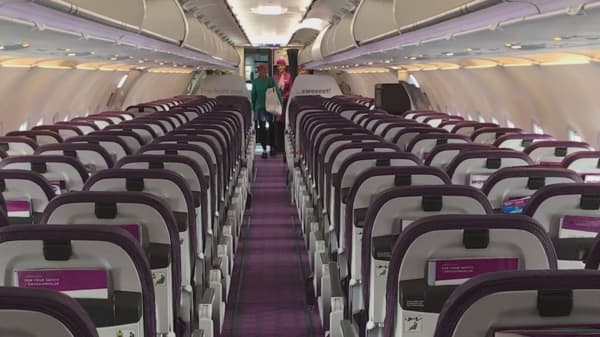
Some of the global airline carriers like British Airways, Norwegian Air or American Airlines connect new flights to the smaller cities which is helping to increase tourism investment in both leisure and MICE travel.
In recent months, global carriers such as British Airways and Norwegian Air have added new flights to Pittsburgh, Oakland, Providence and Fort Lauderdale, according to OAG, a firm that collects and distributes airline schedules. While expanding to a new market can be risky, Kaplan said airlines have had a couple of economic tailwinds that have made it easier for them to take a chance on what airline industry insiders call “secondary” cities.

For one thing Americans are flying abroad more and more. According to the National Travel & Tourism Office, Americans made about 38.3 million overseas trips in 2017, a 9.1 percent increase over 2016. As a result, the climbing demand for air travel has propelled some global airlines to expand to smaller cities in search of untapped markets, such as Cleveland.
Also giving the industry a lift: relatively low oil prices between 2014 and 2017, coupled with newer models of planes that are smaller and more fuel-efficient than previous generations of commercial aircraft. However, the profit-padding that came with cheap jet fuel has begun to flag, said John Grant, a Senior Analyst at OAG. As of mid-November, the International Air Transport Association estimated the global price for jet fuel to be around $85.20 per barrel — about 13.4 percent higher than a year ago.
In October, less than six months after WOW air swooped into town, the budget airline — which had advertised fares as low as $69 for a one-way ticket to Iceland — called it quits in Cleveland (and in St. Louis and Cincinnati, where it also established new routes this year). Less than two days later, Icelandair canceled its remaining fall and winter flights, despite promising in July that it would continue flying from Iceland to Cleveland on a year-round schedule. On October 5, Icelandair announced its intent, pending regulatory approval, to acquire WOW. Neither company responded to a request for comment.
The Cleveland market probably wasn’t big enough yet to support two Iceland-based carriers that offer similar service to Europe, said OAG’s Grant. Or, to put it another way: an oversupply of airline seats met an under supply of butts.
Now some of the airlines are cutting their routes due to several factors. The high cost of operating a plane, the lack of passengers that small markets produce, and a pilot shortage. Due to the increased number of hours a commercial pilot is required to fly, the aging pilot workforce, and fewer pilots coming out of the military, pilots are a rare resource, which forces airlines to drop routes, often at the expense of small communities.
To remedy this issue, the global airlines companies are partnering with regional air carriers to restore flights to underserved areas. In Cheyenne, Wyoming, for instance, the Cheyenne Regional Air Focus Team struck a deal with SkyWest (subcontracted by American Airlines). The passengers can fly between Dallas and Cheyenne nonstop on a 50-passenger SkyWest jet, and for one year of service, the city would guarantee a minimum revenue of $2.3 million.
Last year, Columbia, Missouri, expanded its air service to Denver, guaranteeing United Airlines that its trips to Colorado would bring in at least $600,000 in revenue in one year. The city also waived the landing and rental fees at the airport, about $125,000, and spent $250,000 on marketing for United flights to and from Denver.
In order to ensure airlines won’t lose money on the deal, cities raise money beforehand, usually through a mix of government funding and private donations. In Cheyenne, the $2.3 million came from a mix of state subsidies, city-allocated funds, and private donations.
Tags: british airways, global airlines, John Grant